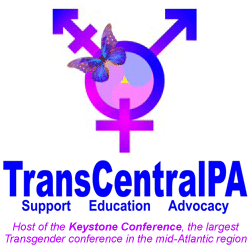Trans Kids: The Mental Health Empire Strikes Back
Recently, there have been indications that some in the Trans Mental Health Empire are pushing back on affirmative treatment for transgender kids as it is now practiced. The criticisms center around not having enough competent providers to deal with the huge increase in transgender kids and rushing kids too soon into medical treatments. The proposed solution to the latter criticism is to greatly increase mental health assessments, gender exploration therapy, and extensive psychotherapy before permission for medical treatment should be granted. Some mental health providers are clearly in conflict of interest positions with regard to increasing mental health assessments and treatments as well as retaining trans kids for research. If they had previous gripes with affirmative treatment of trans kids they certainly kept silent about them and only recently have spoken up. And the pushback provides fodder for right-wing anti-transgender political factions that pretend they are stemming the tide of transgender “ideologies”. Why are we in this predicament? It is due to lack of basic research on transgender causation to give us insight as to how to proceed with treatment. It is also due to failure to heed the warnings that the underlying population frequency of being transgender was much higher than providers thought. Important studies done by transgender people were ignored (and still are).
An Inkling from the Jazz Television Series
There is money to be made, careers to be burnished and institutional kingdoms to be built on the backs of transgender kids (as well as adults) by subjecting them to useless prolonged mental health assessments and “therapies.” We got an inkling of this type of dawdling in the very visible case of the I Am Jazz television series. Her shrink delayed issuing a letter supporting Jazz’s transgender genital plastic surgery on the basis that Jazz had to get her binge eating under control first. The shrink dawdled but never did show that the binge eating had been arrested before issuing the letter. The basic reason for letters from mental health providers is to certify that there are no overwhelming mental health obstacles such as psychosis that could interfere with the success of an operation or procedure. The delay in granting a letter for Jazz was a highly visible but minor example of how mental health providers can extend treatment for transgender kids. It is why I advocate that such letters should be issued by an impartial mental health professional who does not have conflict of interests in prolonged treatment of a patient. This can be accomplished through only a couple of visits to that second or third shrink. It is how I got my letters.
The Keira Bell Lawsuit
The next highly visible incident of conflict of interest that became public occurred in the United Kingdom at the Tavistock Gender Development Clinic. It is the only place trans kids can go to get treated in the U.K. due to socialized medicine there, which must be a logistical nightmare for parents. One of the teenage patients, Keira Bell, was approved for hormone blockers to stop puberty and later sued the clinic because she decided not to continue with the blockers. The suit involved a clash of treatment philosophy between the psychoanalytic Tavistock approach and objective modern approaches more compatible with WPATH Standards of Care. The suit involved mental health practitioners who wanted to keep this patient for long term treatment and research purposes, rather than expeditiously approving the blockers. This is clear from the YouTube video of the “whistleblower”, Marcus Evans who indicated that the Tavistock standard operating procedure was to retain patients to conduct extensive psychological assessments as well as involvement in research and provider training. This extended assessment was not necessary for transgender kids just to determine whether the child was eligible to obtain blockers. It is clear that this “whistleblower” also believed that transgender kids would grow out of their transgender behavior in time. (I have refuted this assertion in previous posts; the evidence shows that, until recently, transgender kids were not the ones under treatment but instead pre-homosexual kids, so naturally most were not adult transgender people but instead homosexuals) Keira initially won her suit on the basis that she was too immature to give informed consent, but the case was later decided on the principle of upholding parental rights to make decisions for minor children. (The principle of parental rights to make decisions for children is upheld in other kinds of cases in the U.K. and U.S.) Typically, the only exceptions to this is for medical treatment when the child or a relative takes such cases to court and a judge overrules one or both of the parents. In rare cases, the child can be emancipated, meaning that they are treated as adults to make their own decisions. This has happened in very rare cases when a child wants transgender treatment which the parents deny.
The Curious Cases of Sixty Minutes and the WaPo Op-ed
 The next visible sign of this pushback I detected was the confusing interview on CBS’s Sixty Minutes in which a prominent mental health professional, Erica Anderson, urged that state laws should not be passed that ban affirmative care for transgender children. Right on! The Lesley Stahl piece called attention to the dangers of transition regret and she could have set the record straight that the rates of regret after full transition are very low despite being featured by anti-trans advocates. But instead she took the opportunity to criticize the care that she said many trans kids were currently receiving in the U.S. According to Erica, a Ph.D. Clinical Psychologist, there were not enough competent providers to deal with the huge increase in transgender kids (population frequency estimates have now grown to 1.8% of those under 18) and many are rushed too soon into medical treatment. Anderson was the President of USPATH (the U.S. Chapter of WPATH) and represented USPATH on the WPATH Board. She is now USPATH past-President and still on the USPATH Board. USPATH has not taken a stand on current quality of care but has concentrated on political posturing as you can tell from their declarations on the WPATH website.
The next visible sign of this pushback I detected was the confusing interview on CBS’s Sixty Minutes in which a prominent mental health professional, Erica Anderson, urged that state laws should not be passed that ban affirmative care for transgender children. Right on! The Lesley Stahl piece called attention to the dangers of transition regret and she could have set the record straight that the rates of regret after full transition are very low despite being featured by anti-trans advocates. But instead she took the opportunity to criticize the care that she said many trans kids were currently receiving in the U.S. According to Erica, a Ph.D. Clinical Psychologist, there were not enough competent providers to deal with the huge increase in transgender kids (population frequency estimates have now grown to 1.8% of those under 18) and many are rushed too soon into medical treatment. Anderson was the President of USPATH (the U.S. Chapter of WPATH) and represented USPATH on the WPATH Board. She is now USPATH past-President and still on the USPATH Board. USPATH has not taken a stand on current quality of care but has concentrated on political posturing as you can tell from their declarations on the WPATH website.
Anderson has subsequently quit her academic clinic position. Thus, she had previously been in powerful professional society and academic positions where she could have done something about these supposed problems. But she waited to call attention to them until she was out of USPATH Presidential office and out of academia. She has subsequently expanded her private practice and also provides training to other providers. She has launched a media campaign on Facebook and has launched a YouTube channel.
In the second case, Anderson contributed to a Washington Post op-ed which describes her positions. In it she says she believes in evidence-based practice. However, then she states that care for transgender kids has sometimes been poor but admits there are no studies providing evidence that support this notion. She indicated that her perception of poor care comes from personal communications with peers, and with parents who want to proceed more slowly with medical treatments of their kids. The latter group is hardly unbiased. In addition to the Standards of Care requirement for mental health assessment before children under 18 can receive hormones, she advocates for compulsory “gender-exploratory therapy” which could continue for months or years. This would put a huge burden on already stressed mental health resources but growth for mental health practices. I am all for transgender people having access to counseling but there is no need for therapy since being transgender is not pathological and cannot be “cured” by any known therapy.
I will have more to say about this Op-ed in future posts with regard to developments in the ROGD (Rapid Onset Gender Dysphoria) controversy which is also advocates for psychoanalysis for trans kids.
Anti-trans Fundraising
The pushback has triggered the anti-trans forces to reinforce the idea that affirmative treatment of trans kids should be banned. The pushback provides fodder for right-wing anti-transgender political factions that earn money through donations aimed at stemming the tide of transgender “ideologies”. Some of these factions assault affirmative treatment for transgender kids on political grounds, cloaked in religion. Some of these factions also support providers who insist on pushing discredited ideas about the cause of being transgender such as “autogynephilia”, early trauma, psychodynamics and incorrect parental child rearing. (In previous posts I have debunked all of these). Some mental health providers advocate for gender change efforts because they believe that being transgender is somehow a learned sexual perversion. They also believe that it can be “cured” by reward and punishment in conversion or reparative “therapies”. Of course, similar change efforts have been shown to be ineffective and sometimes resulting in psychological and physical injury in attempts to change sexual orientation.
Ignoring Transgender Population Estimates Made by a Transgender Scientist
Where were those who now pushback when population frequencies of being transgender were predicted to be 1-2% in the natal male population in the early 2000s? They ignored these excellent studies by Lynn Conway in which she made estimates based on actual counting of transgender people in “the wild”. Instead, they only counted those who came to the handful of gender clinics that existed at that time; today, there are now over 50 in the U.S. alone. Evidence along the way has increasingly found that the population frequency of trans men was approaching the same frequencies. Today, if these estimates had been heeded, a sufficient number of trained providers would be available. Props for Scotland and the U.K. which did surveys of transgender people in order to predict how much capacity was needed. But those scientific population surveys were ignored by the U.K. socialized medicine organization, the National Health Service.
So, what should we do about all this? I contend that we need more basic research into transgender causation as well as basic research to resolve transgender treatment issues. For example, there is much we do not know about hormone therapy. Only basic research will provide the needed evidence. Although being transgender is not pathological, it sometimes requires medical treatment, just like other conditions, such as normal pregnancy. Causation and issue research requires big science efforts that can only be funded by the U.S. National Institutes of Health (NIH). But the NIH is set up to only study diseases and being transgender is not a disease. Because being transgender is a third electrified rail, Congresses and administrations continue to ignore it for potential science funding. Big private funding, such as the MacArthur prize grant of $625,000 given to psychologist Kristina Olson to intensively study transgender children can help fill the gap but that one grant by itself will not suffice.
Over the years, transgender people including children have been the subject of a variety of pernicious mental health treatments. Mental health providers are going to have to do better to get their own houses in order before I will fully put my trust in them. They seem to do a good job of transgender counseling—and they should stick to that. They should not try to enlarge their practice or detain patients for research by prolonged psychological assessments, “gender-exploratory therapy” and useless psychoanalysis to try to “cure” being transgender.
Like to make a comment? Login here and use the comment area below.
Category: Transgender Community News















